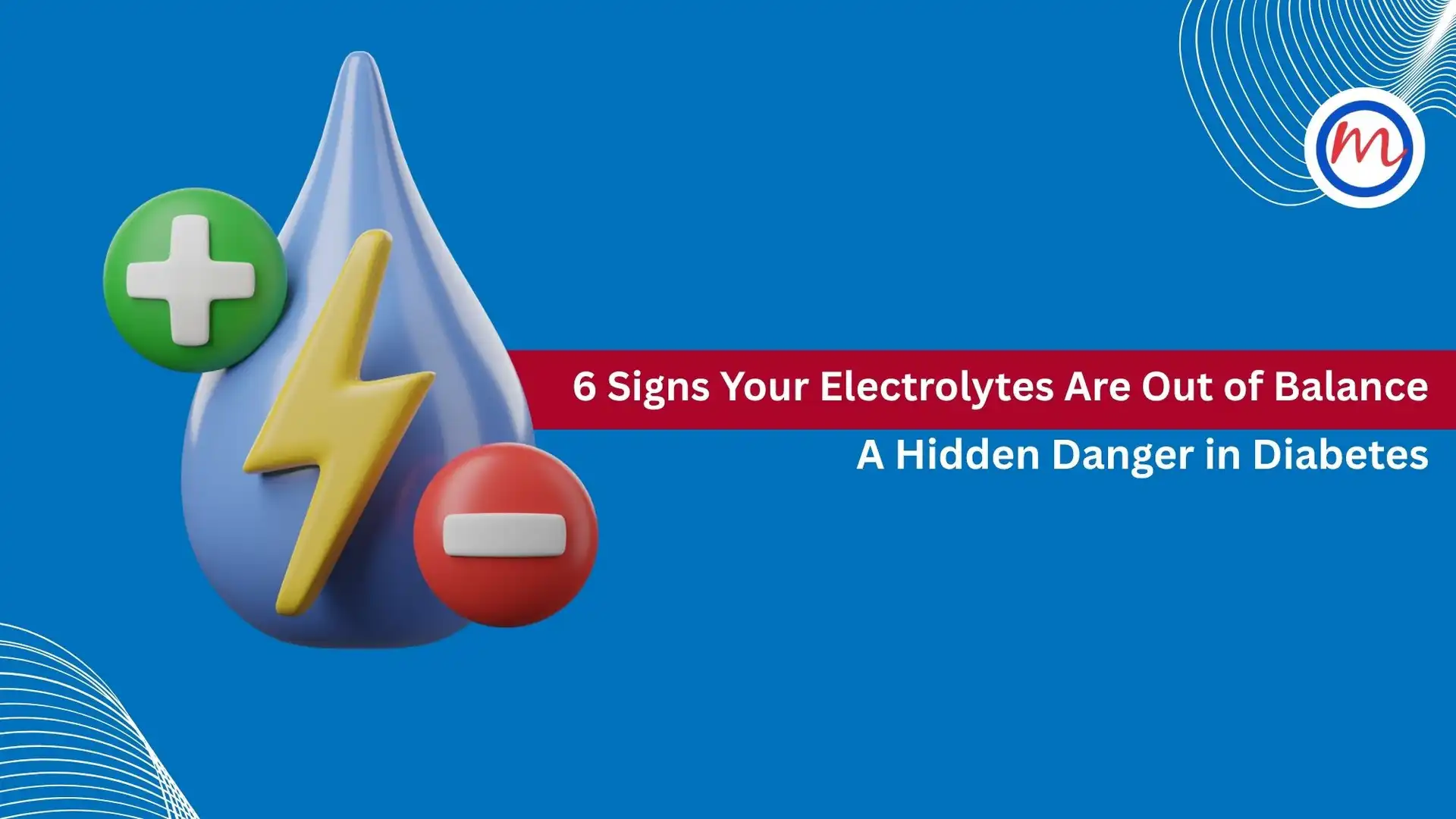6 Signs Your Electrolytes Are Out of Balance – A Hidden Danger in Diabetes
Electrolytes like sodium, potassium and chloride are vital minerals that help regulate your hydration, nerve function, muscle activity and heart rhythm. For people with diabetes, maintaining the right electrolyte balance is especially important — yet often overlooked.
High blood sugar, certain medications, kidney issues or excess urination can silently disrupt your electrolyte levels, leading to serious consequences if left unchecked.
Here are 6 warning signs your electrolytes may be out of balance, and why a Serum Electrolyte Test is a must in diabetes care.
-
Muscle Weakness or Cramps
Low potassium or sodium levels can cause:
- Muscle fatigue
- Leg cramps
- Spasms or weakness
If your muscles feel weak or sore despite rest, an electrolyte test can offer answers.
-
Irregular Heartbeat or Palpitations
Electrolytes like potassium, magnesium and calcium regulate your heart’s electrical signals. Imbalances can lead to:
- Skipped beats
- Racing heart
- Arrhythmias
For those with diabetes and high BP, even a slight imbalance can raise cardiac risk.
-
Excessive Thirst and Frequent Urination
High blood sugar causes the kidneys to flush out excess glucose, and along with it, essential electrolytes like sodium and potassium.
If you are constantly thirsty or urinating often, electrolyte loss could be a hidden problem.
-
Confusion, Dizziness or Brain Fog
Low sodium (hyponatremia) can affect brain function, leading to:
- Disorientation
- Poor concentration
- Dizziness or falls
These symptoms are subtle but serious — don’t ignore mental changes.
-
Persistent Nausea or Vomiting
Electrolyte imbalance, especially in cases of high or low blood sugar, can cause digestive discomfort, nausea or even vomiting.
If it persists without a clear cause, check your serum electrolytes and hydration.
-
You Take Diuretics or Have Kidney Issues
Medications for blood pressure or heart disease can flush out electrolytes. Kidney dysfunction in diabetes also interferes with the body’s ability to retain or excrete minerals properly.
Regular monitoring helps prevent severe complications from silent imbalances.
Normal Electrolyte Ranges
| Electrolyte | Normal Range |
| Sodium | 135 – 145 mEq/L |
| Potassium | 3.5 – 5.1 mEq/L |
| Chloride | 98 – 107 mEq/L |
Abnormalities can occur even within “normal” limits, based on individual health.
At Dr. Mohan’s Diabetes Specialities Centre, Serum Electrolyte testing is included in our diabetes health check-ups to ensure your heart, kidneys and muscles are functioning safely and efficiently.
For an appointment, visit our site : https://drmohans.com/



